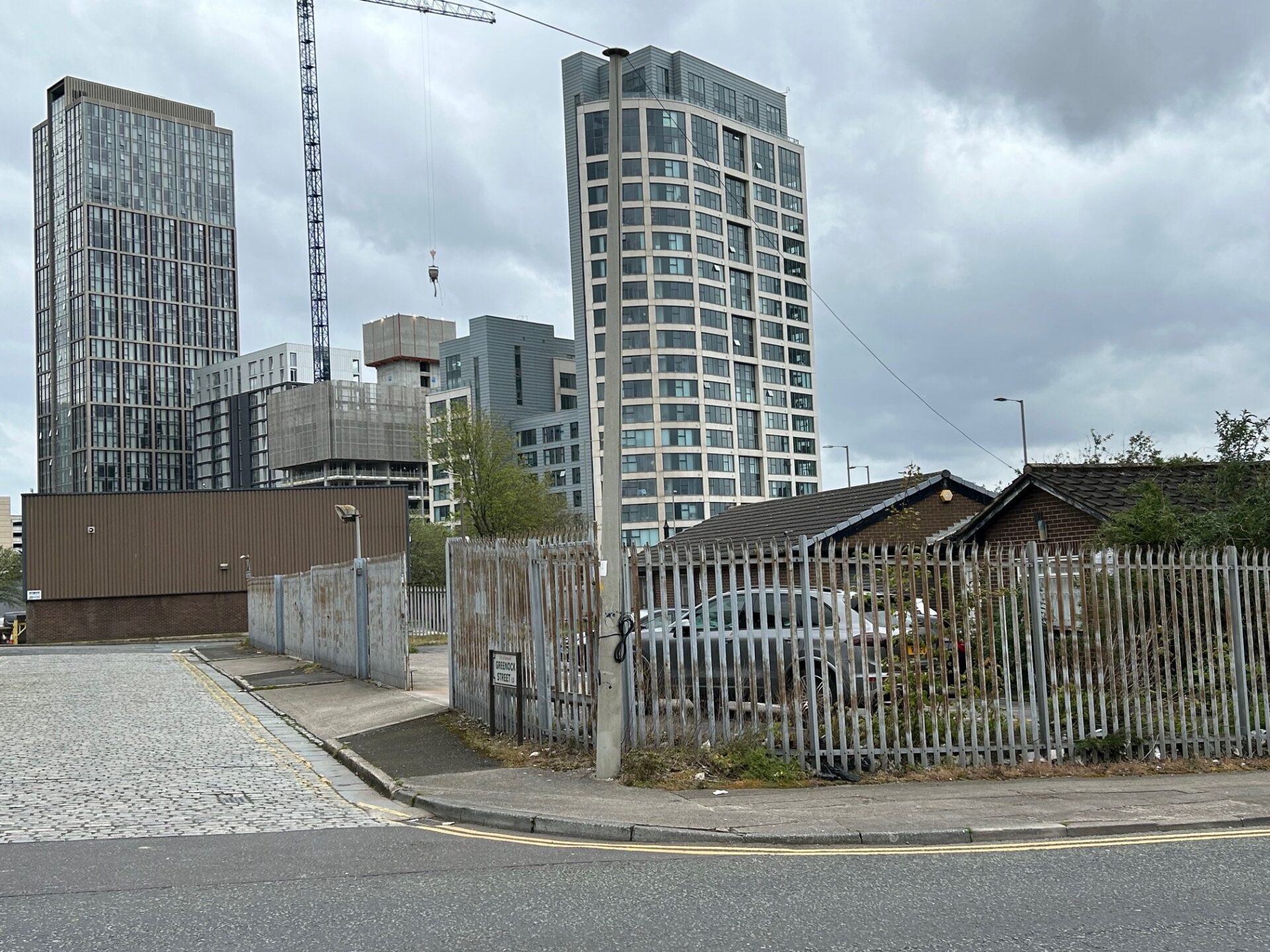Liverpool CEO reflects on six months in post
Earlier this year, Andrew Lewis stepped into the brooding aftermath of what he describes as a “catastrophic crisis of governance” to lead the city council into a new, more prosperous era. Half a year into the job, he sat down with Place North West to discuss how it is going.
When Lewis took over as chief executive of Liverpool City Council in June, he did not step aboard a sinking ship.
The process of bailing out the murky water from the authority’s hull was already well underway. The ship was stable but badly damaged, stuck in the harbour.
Six months into the job, the situation at Liverpool City Council is far from plain sailing but the new chief executive is hopeful that calmer waters are on the horizon.
Bruising intervention
In the eyes of many, Liverpool’s new era will truly begin once it has unshackled itself from the government commissioners who were installed to oversee the running of the city council in 2021.
It has been a bruising but necessary intervention for a proud city, but one that Lewis hopes will soon be over.
“We’re now entering the beginning of the end of the intervention,” he said.
“You’ll see shortly the latest report from our commissioners, which will signal really important progress has been made.”
While Liverpool City Council might soon be trusted to govern alone, Lewis knows the hard work is not done, citing “the longest to-do list and local governments at the moment”.
“We’ve got to improve our systems. For example, our property function. And we need to reinvigorate our capacity for service delivery. We need to get much closer to neighbourhoods and deliver much more closely into communities.”
Recruitment and regeneration
To do that, you need people. When Lewis arrived at the Cunard Building from Cheshire West and Chester Council, he adopted a threadbare team.
“The big task over the last few months has been recruitment,” he said. “When I started, about three-quarters of the senior team were vacancies or interims.”
The process of identifying and hiring the right people to lead Liverpool out of the doldrums has been time-consuming but successful.
Notable arrivals include Nuala Gallagher and Sophie Bevan to the council’s development team, while Cllr Liam Robinson, elected leader after the May elections, has been received positively while he gets his feet under the table.
Together, the city’s leaders have been saying all the right things when it comes to development – aside from the controversial tall buildings policy, which has split opinion and drawn anti-development accusations from some quarters.
Regeneration is an area they are keen to focus on, even in the midst of national economic and political uncertainty, which makes for a particularly tricky time for local authorities.
“The development of the city offers so many positive opportunities to give people hope for the longer term,” Lewis said.
“You have to have a long-term vision, but you also have to have the capability to be able to deal with the immediate challenges. That’s the great complexity of running a city. You can’t deprioritise either.”
When Lewis’s appointment was announced earlier this year, many viewed him as exactly what the city needed – a safe pair of hands. It is a perception the man himself does not disagree with.
“I think if you’re committed to working in local government, and particularly if you want to make a difference in areas that require a really strong and active form of local government, where better to do that than Liverpool?
“Liverpool has gone through some tough times. But there’s a real sense that there is a positive transformation underway.”
Reputation reparations
While the noises coming from the city council are positive, and local stakeholders seem buoyed by the approach a largely new-look authority is taking, it will take time and many deft hands to repair the damage of the last few years.
“One thing the recent experience of Liverpool has shown is that you lose a reputation very rapidly, and it takes a long time to rebuild,” Lewis said.
Max Caller’s damning report into the “dysfunctional” running of the city council was a watershed moment. It prompted concerted efforts from previous chief executive Tony Reeves and his interim successor Theresa Grant to drag the city from the brink.
One of Caller’s most worrying findings was a culture of favouritism. Some developers viewed the Liverpool City Council led by former Mayor Joe Anderson as a closed shop, an authority that would only deal with a select group of property players.
Lewis is insistent that the dial is being moved in this regard.
“We’ve had many conversations with developers, some of whom have said that in the recent past they weren’t willing to work in Liverpool.
“They are now starting to see that the council is much more transparent in its dealings with the private sector, much more focused on the outcomes for residents – that we have an integrity and a solidity about the leadership of a council that gives confidence in the longer term.”
The era that Caller described in his report left Liverpool languishing behind other regional cities in development terms.
It is unhelpful to make too many comparisons with its neighbour down the M62 but equally impossible to ignore how different the two cities’ recent fortunes have been in terms of development.
This week, Salboy, a private sector developer, unveiled plans for a 76-storey tower in Manchester, the tallest in the UK outside of London.
It is hard to envisage anything near that scale coming forward in Liverpool any time soon.
“There’s a lot to learn from Manchester just as there is from Leeds and Newcastle and many other cities,” Lewis said. “But actually, in the end, we have to do something that meets the distinctive needs of our own community.”
Turning rhetoric into reality
At present, there is a disconnect between the optimistic narrative coming out of the city council and the reality for developers on the ground – a sluggish planning system is a regular gripe.
However, Lewis says there is an opportunity to turn the rhetoric into reality.
“What I would say to developers is that now is the time to engage with Liverpool,” he said.
“We’re at the beginning of what I hope will be a very positive period of economic renaissance for the city. There’s a lot to be done here and a lot of opportunities to make a difference.”





“We have to do something that meets the distinctive needs of our own community”, and there it is in that sentence, we are not changing, we are going to continue with this strange idea of a low-rise, low architectural risk mentality, because some group somewhere has been allowed to ingrain this idea into peoples’ heads that this is what’s best for the city.
So where has it got us? We’re at the bottom of the heap in the minds of developers when it comes to investing serious money, and it looks like we’re going to be stuck there.
By Anonymous
“alot to learn from newcastle”..Interesting, like what exactly? As far as im away its development has been even slower than Liverpool’s over the recent decade?
By Anonymous
I’m part of the community and I want tall skyscrapers. Let’s get the city back to thinking big again! The LCC are always lowering ambitions people need to thrive. I want taller buildings.
By Anonymous
How can a “community” emerge in a non-human-centric high-rise block of flats. A proper community is a group of people who interact, have shared interests, and care for each other like a second family. Not strangers living next to other strangers.
By Anonymous
November 30, 2023 at 9:42 am I live in a standard terrace house and don’t really see much in terms of “community” around my ways. The romantic view you seem to hold is from a bygone era I’m afraid.
By Anonymous
@Anon 9.42am, lots of people in London live in blocks of flats and they are great communities, also lots there live in houses and never talk to each other. We had great communities in Liverpool living in Gerard Gardens, Fontenoy Gardens etc etc. but these blocks were demolished. People had shared interests because they worked together , plus their extended family was often around them,those days are mostly gone.
By Anonymous
There is a great deal to learn from Manchester – good and bad. Manchester has had some fantastic projects and received a lot of money – so yes Liverpool often feels like Cinderella or the poor relation for Liverpool. But before the recession a lot of great buildings were lost/demolished to make way for development in Manchester – and when its gone its gone. I feel that albeit not had the development Liverpool has managed to hang onto some of the older mills etc and yes its slowed stuff down and people on here will call it sentimental getting in way of development – but I would prefer Liverpool to keep a lot of the old stuff. There are blocks upon blocks of flats/apartments in Manchester, it is getting like London in that some of them are unoccupied – you can only buy them if a cash buyer – presumably been snapped up by overseas developers. I know because I have family who have tried to buy – could not get for trying.
So why can Liverpool (and Manchester) not move towards a more European approach – not just one bed soulless apartments – why not family apartments – a proper city life?
And why do they have to be skyscapers – its not a competition – some yes – not mines gotta be bigger than yours. We’re not in Dubai.
By Bob Dawson
Ah well, back to totally ‘ honest’ labour council running things again!! Stand by for a plethora of student flats!!!
By Bryan
What did the article tell us about his plans for Liverpool? What are the main drivers for the City, Culture, life Sciences, universities, residential neighbourhoods. What’s the plan?
By TJ
@Bryan, another one having a dig at students and student flats, there’s acre upon acre of land to build non-student accommodation, even in the Baltic, also go and look down Scotland Rd or Vauxhall , but where are the developers who want to do it, too busy building boring off the shelf housing in Knowsley.
If it wasn’t for students many areas would be as dead as the night and shops would have no business.
By Anonymous